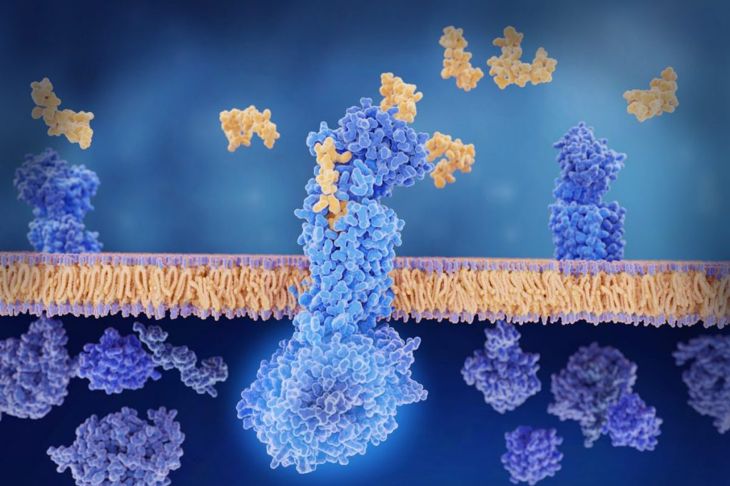What is the difference between acetaminophen vs. ibuprofen? Although people take these two medications to treat similar conditions, each has unique effects and precautions. Both address pain relief, but ibuprofen works better for pain caused by inflammation — it is a non-steroidal anti-inflammatory. Acetaminophen or paracetamol works better for reducing fever and pain not caused by inflammation. Both medications are sold on their own or in combination with other medications, depending on their intended use. Both acetaminophen and ibuprofen have various brand names, but reading the ingredients can tell you which medicine the brand contains.
How Do They Work?
The main job of acetaminophen is to inhibit pain signals in the brain. It doesn’t inhibit inflammatory enzymes, which is why it doesn’t work well as an anti-inflammatory. Ibuprofen, on the other hand, inhibits prostaglandins, which are a key component in the inflammatory response. It has some capacity to reduce fever as well, but the mechanism is different and less effective than acetaminophen.
Treatment for Pain
Acetaminophen is beneficial for pain from headaches, surgery, toothaches, colds, and the flu. It can ease aches from arthritic conditions or injury but doesn’t reduce inflammation. It treats tension headaches but may not help with headaches caused by inflammation. Ibuprofen works for any inflammatory condition including headaches, muscle aches, menstrual cramps, injuries, and arthritis.
Treatment for Fever, Colds, and Flu
Both acetaminophen and ibuprofen can help treat fever, colds, and flu. Acetaminophen may work better for fever reduction in adults, whereas ibuprofen is better for reducing fever in children. Different factors cause pain in people with colds and the flu. Sinus congestion is due to inflammatory processes which may respond better to ibuprofen. However, muscle aches and fever may respond better to acetaminophen. Deciding between these medications often depends on which symptom is most distressing.
Treatment for Other Conditions
For conditions like osteoarthritis, pain stems from two sources: an inflammatory process and bones rubbing together due to lack of cartilage and fluid in the joint. People with arthritis sometimes find it helpful to alternate between acetaminophen and ibuprofen. Research suggests post-operative pain responds well to a mix of both medications, as well, as pain is often severe and comes from different mechanisms. Ibuprofen works best for dental pain; however, if a patient has a history of bleeding, the dentist will often recommend acetaminophen instead.
Common Side Effects
When taken correctly, acetaminophen has few side effects. Nausea, headache, insomnia, and fatigue can occur but are rare. Ibuprofen, however, has several side effects. Most notable are gastric problems such as nausea, acid reflux, diarrhea, and constipation. Repeated use of ibuprofen can cause stomach ulcers and it may increase shortness of breath in people with asthma.
Precautions and Interactions
Acetaminophen can cause liver damage at high doses. There is a higher risk of liver damage if people take acetaminophen in combination with other medications that impact the liver. The medicine should never be combined with alcohol, as this significantly increases liver toxicity. Ibuprofen can cause decreased blood coagulation, so people with blood coagulation disorders should take care. Ibuprofen decreases blood flow to the kidneys, so long term use can increase kidney disease. Taking ibuprofen with alcohol can increase the risk of gastric bleeding. Also, ibuprofen may increase sun sensitivity.
Overdose
Acute liver failure is the ultimate symptom overdose from pain relievers. The symptoms include rapid onset of nausea, vomiting, sweating, jaundice, and abdominal swelling. Acetaminophen overdose is the most common cause of acute liver failure — many people don’t know the correct dosage and may not know that the drug is part of many over-the-counter medications. Symptoms of overdose are abdominal pain, nausea, vomiting, dizziness, ringing in the ears, shortness of breath, and irregular eye movements. In very high doses, death can occur due to kidney failure, cardiac issues, or respiratory depression.
How to Take Acetaminophen and Ibuprofen
A daily dose of acetaminophen should not exceed 3000 milligrams. Though the drug should not be taken in combination with other medications containing it, it can be taken on an empty or full stomach. The maximum daily dose of ibuprofen is 1200 mg, and it is best to take it with food. Do not lie down for at least ten minutes after taking ibuprofen. Do not take ibuprofen with other medications that contain ibuprofen or other nonsteroidal anti-inflammatories. As always, check with a doctor before taking any medications besides those a professional prescribed.
Who Should Not Take These Medications?
Do not take acetaminophen or ibuprofen if you’ve had an allergic reaction to the medication or their components in the past. Additionally, people with alcohol dependence disorders and liver or kidney disease should avoid these drugs Parents should not give ibuprofen to children under six months.
Natural Alternatives
Acetaminophen and ibuprofen do have some natural alternatives. Plant-based herbs and supplements can help relieve pain and inflammation without the more serious side effects of the drugs. Turmeric, ginger, cats claw, Boswellia, and white willow bark are effective natural anti-inflammatories. Capsaicin, which is derived from chili peppers, can help reduce pain but may not help with inflammatory pain. Valerian root is a mild pain reliever and has a calming effect. Also taking magnesium can reduce pain and muscle ache. Lastly, essential oils such as chamomile, lavender or sage can be helpful as well. Natural remedies can also cause unwanted effects, however, and anyone choosing to try these alternatives for an extended period should speak to their doctor.

 Home
Home Health
Health Diet & Nutrition
Diet & Nutrition Living Well
Living Well More
More




















